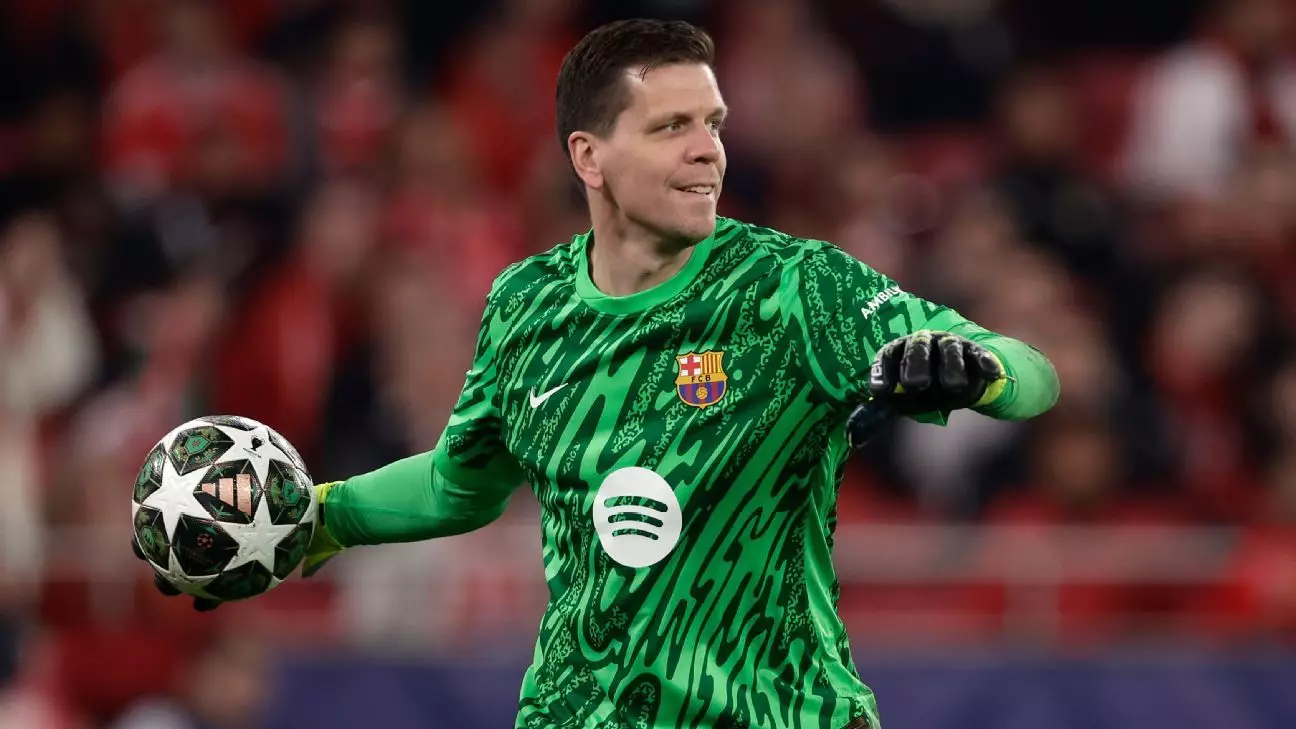In a world increasingly defined by health consciousness and athletic perfectionism, Wojciech Szczesny’s candid admission about his smoking habits exposes a complicating factor in the athlete role model narrative. The 35-year-old goalkeeper, who joined FC Barcelona after stepping out of retirement, finds himself bearing the duality of being celebrated for his on-field prowess while simultaneously grappling with an addiction that many recognize as detrimental. This juxtaposition forces us to reevaluate what we expect from our sports heroes and the pressures they face.
Szczesny’s openness about smoking is remarkably refreshing yet equally disconcerting in a sporting culture often reluctant to address its vices. It is not every day that a professional athlete publicly declares a personal defeat against addiction, but this revelation strays from the typical milquetoast narratives that dominate sports discourse. Instead, Szczesny’s story echoes a vital message of transparency and vulnerability, warning aspiring young athletes against following in his footsteps. He underscores that honesty in discussing personal challenges does not weaken him; rather, it enriches the dialogue around professionalism and health in sports.
A Contradictory Legacy
While Szczesny has enjoyed significant success on the field—with a staggering 25 appearances and 13 clean sheets for Barcelona—his presence carries a duality that complicates his legacy. With fans chanting phrases like “Szczesny fumador,” it is easy to misinterpret the acceptance of his smoking habit as a form of glorification rather than caution. Though sports culture often embraces flaws with a wink and a nod, Szczesny is determined to use this narrative to caution young supporters, urging them to heed his struggles rather than emulate them.
His assertion, “I’ve lost the fight,” is a poignant admission that contradicts the athletic ideal of unyielding strength and discipline. The truth he brings to light regarding personal mortality and struggles presents an opportunity to recontextualize athletes’ lives beyond mere competition. Rather than epitomizing untouchable heroes, Szczesny humanizes himself and opens the door to discussions about addiction, wellness, and personal responsibility.
The Burden of Honesty
In an age dominated by social media and marketing pressures, Szczesny’s willingness to openly discuss a taboo subject is both brave and risky. He succinctly states, “I’m just a goalkeeper. I have to catch a ball and kick it,” encapsulating a sentiment that reveals the reluctance of many athletes to diverge from the scripted narratives that promise brand endorsements and public adoration. Casual fans may expect polished perfection, yet Szczesny signifies a break in this façade.
His simple honesty is striking, effectively inviting inquiries into a subject that most would prefer to keep under wraps. While he acknowledges a desire to avoid the conversation entirely— saying he would “rather not have the question asked”—his ability to engage, despite discomfort, adds complexity to his character. This honesty could make him an emblematic figure advocating for mental health awareness and the importance of addressing issues that often remain unspoken in athletes’ circles.
Beyond the Goalpost: A Call to Authenticity
Szczesny’s plight serves as a critical reminder of the importance of authenticity in the sports arena. His modest approach to discussing personal failings not only humanizes him but also encourages fans to embrace imperfection and struggle as an inevitable part of life. Rather than shielding themselves behind crafted personas, athletes can pave the way for a more relatable and honest discourse, eliminating the unrealistic expectations placed upon them.
Moreover, Szczesny’s journey sheds light on the importance of mentorship in sports. Though he admits to struggling with his own vices, his role as a mentor to young players should not be dismissed. Instead, it should be viewed as an opportunity to foster conversations about healthy habits, mental wellness, and the authenticity of experiences that enrich the sport.
In the grand tapestry of sports narratives, Wojciech Szczesny stands out as a figure who transcends the archetype of a simple athlete. His admission of smoking not only dissects the conventional expectations but adds layers of complexity to the role of professional athletes as both competitors and individuals revealing unvarnished truths woven into the fabric of their lives.

